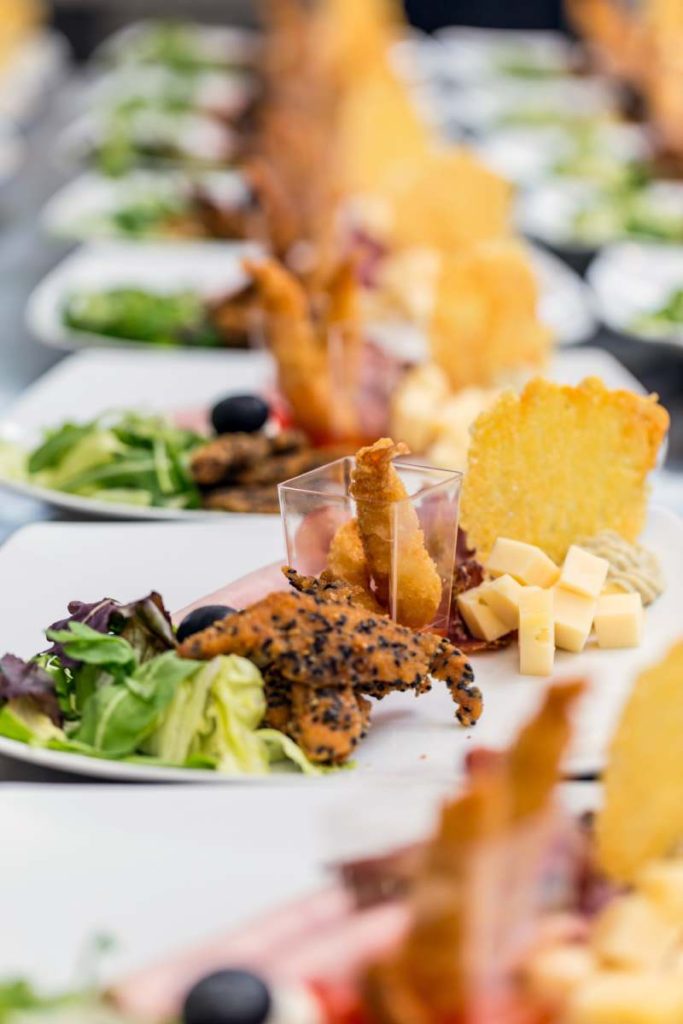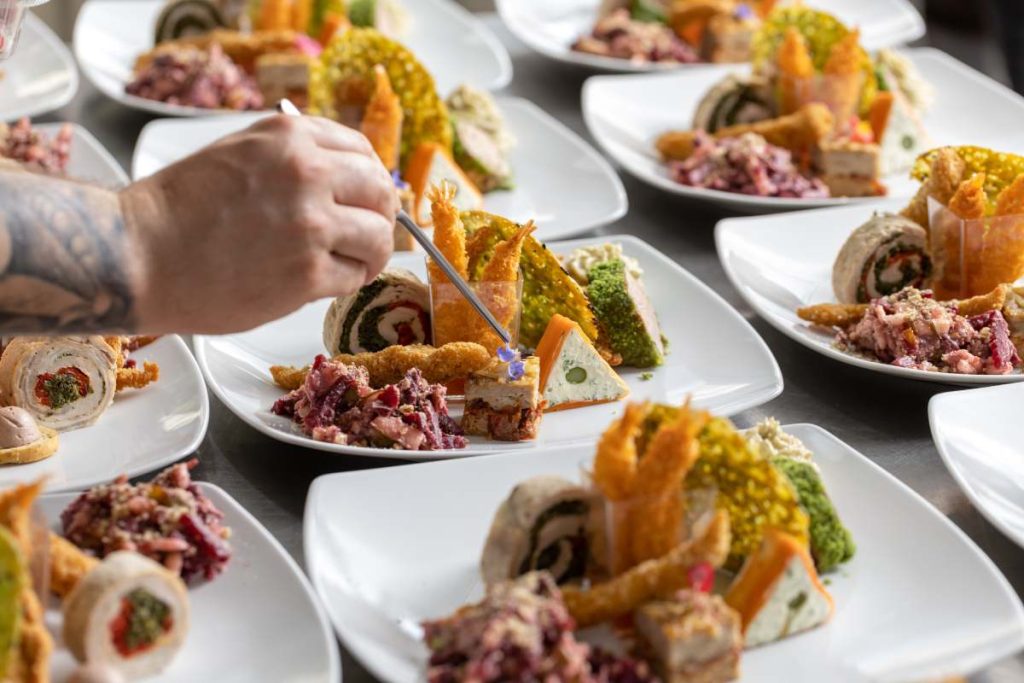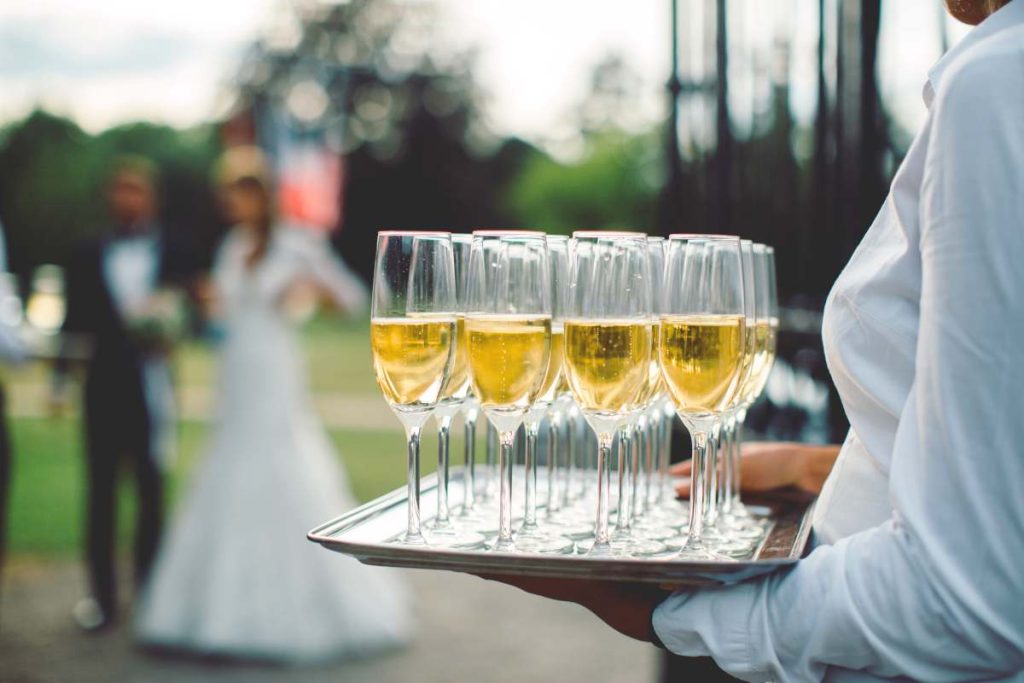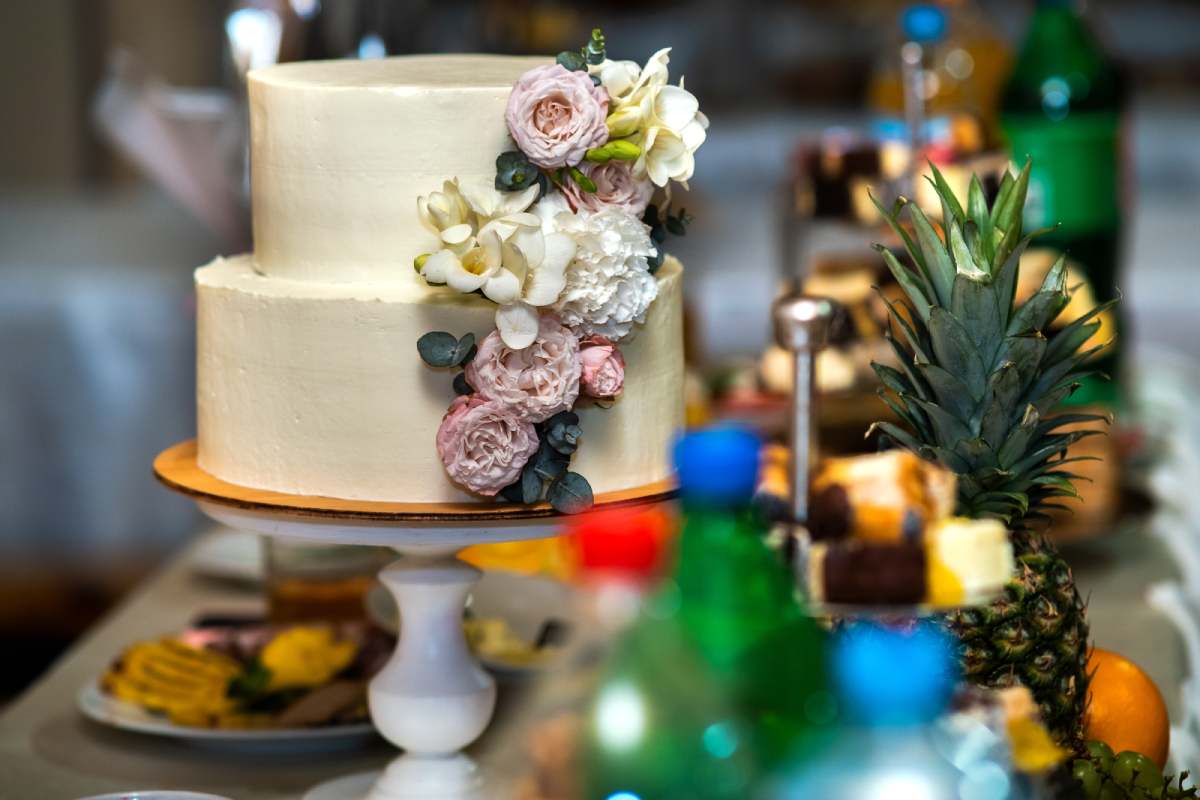Catering a wedding is like building a house, there are many elements, and each one offers different price options. Like many parts of your wedding celebration, the cost of catering can vary widely based on several factors.
Understanding these elements and their average costs can help you plan your budget effectively. Here’s what you can expect to pay to wine and dine your wedding guests.
More like this:
How Much Does Wedding Catering Cost in Australia?
When planning a wedding, one of the most significant expenses is catering. Understanding the costs involved can help you budget effectively and ensure your special day goes smoothly. Here’s a comprehensive guide to wedding catering costs in Australia.
Factors Influencing Wedding Catering Costs

- Number of Guests: The more guests you have, the higher the cost. Caterers typically charge per person, so the guest count directly impacts the total price.
- Type of Catering: The style of catering you choose will influence costs. Options include:
- Plated Meals: Guests are served individually at their tables. This is often the most expensive option due to the need for more staff and the complexity of serving multiple courses.
- Buffet: Guests serve themselves from a variety of dishes. Buffets can be more affordable as they require fewer staff.
- Food Stations: Different stations offer various types of food, such as a pasta station, a sushi bar, or a dessert table. This is a flexible option that can be tailored to your budget.
- Cocktail Style: Small, bite-sized appetizers are served. This can be a cost-effective choice if you don’t want a full meal.
- Menu Choices: The type of food and drink you select will affect the cost. Gourmet or speciality items are more expensive than standard fare. Additionally, dietary requirements and preferences (like vegan or gluten-free options) can influence pricing.
- Location: Catering costs can vary depending on the location of your wedding. Urban areas, particularly cities like Sydney and Melbourne, may have higher prices than rural areas.
- Season and Date: Wedding costs, including catering, can fluctuate based on the season and day of the week. Peak wedding seasons (spring and summer) and weekends are typically more expensive.
Average Costs of Wedding in 2024
As of 2024, here’s a rough estimate of wedding catering costs in Australia:
- Plated Meals: $100 to $200 per person. This includes multiple courses and is the most formal option.
- Buffet: $50 to $100 per person. A more casual option that allows guests to choose their portions.
- Food Stations: $75 to $150 per person. Offers variety and customization.
- Cocktail Style: $30 to $70 per person. Ideal for a less formal setting and shorter event duration.
These costs typically cover food, staffing, and basic tableware. Additional expenses may include:
- Beverages: Alcoholic and non-alcoholic drink packages can range from $15 to $50 per person.
- Service Charges: Some caterers include service charges (typically 10-20%) in their pricing. Others may add it as a separate line item.
- Equipment Rental: If your venue doesn’t provide tables, chairs, linens, and tableware, you may need to rent these items.
Tips for Managing Catering Costs
- Set a Budget: Determine how much you can afford to spend on catering and stick to it. Communicate your budget to potential caterers to find options within your price range.
- Get Multiple Quotes: Shop around and get quotes from several caterers. This will give you a better idea of market rates and help you find the best value for your money.
- Consider Off-Peak Times: If possible, plan your wedding during the off-season or on a weekday. This can result in significant savings.
- Limit the Guest List: Reducing the number of guests can dramatically lower your catering costs. Focus on inviting close friends and family.
- Opt for Simple Menus: Choosing a simpler menu with fewer courses or more affordable ingredients can help keep costs down without sacrificing quality.
- DIY Options: For smaller weddings, consider DIY catering options like a potluck or hiring a food truck. This can be a fun and budget-friendly alternative.

What is Included in a Wedding Catering Package?
Planning your wedding catering can be handled by your venue or an outside caterer. Understanding what’s included can be confusing, but here’s a simple breakdown of what you typically get with a wedding catering package, usually priced per person:
Food
The main part of your catering package is the food your guests will enjoy during cocktail hour and the main meal. This can be served as plated meals or buffet style, depending on your preference and discussion with your caterer.
Beverages
Your caterer usually provides a range of beverages, including both alcoholic and non-alcoholic options, for your guests to enjoy throughout the event.
Staffing
A successful wedding reception requires a team of staff members, including an event manager, cooks, servers, bartenders, and more. It’s important to ensure your caterer provides enough staff to make everything run smoothly.
Rentals
Caterers often provide necessary rentals such as tables, chairs, dishes, glassware, and utensils. Some venues might include these, but if not, you may need to hire a separate company to supply them.
Additional Fees
Be aware of extra costs that might be added to your catering bills, such as cake-cutting fees or corkage fees. Make sure to read your contract carefully and ask questions to fully understand all the costs involved.
What Are the Different Wedding Bar Options?
Choosing how to serve alcohol at your wedding depends on your guests’ preferences and your budget. Here are the main options:
Full Open Bar
A full open bar offers a wide selection of wines, beers, hard alcohol, and non-alcoholic drinks. The hosts pay for everything, so guests enjoy their drinks for free.
Limited Open Bar
A limited open bar is a more budget-friendly option. It typically includes wine, beer, and perhaps one type of hard alcohol, along with non-alcoholic beverages. The hosts cover the cost, but it’s cheaper than a full open bar because it has fewer options.
Cash Bar
With a cash bar, guests pay for their own drinks.
Payment Options
You can choose how to pay for the wedding bar in two ways:
- Per Drink: You pay based on the number of drinks served.
- Flat Fee: You pay a set amount regardless of how much is consumed.
If you expect your guests to drink a lot, a flat fee might save you money. If not, paying per drink could be more economical.

How Can You Save Money on Wedding Food and Drinks?
Planning a wedding can be expensive, especially when it comes to food and drinks. However, with some smart strategies, you can cut costs without compromising on quality. Here are some tips to help you save:
Be Smart About Cocktail Hour
During cocktail hour, serve expensive items like lobster or shrimp as passed hors d’oeuvres. Place less expensive items on stationary platters. This approach can help control costs while still offering a variety of foods. On average, hors d’oeuvres cost about $20 per person.
Limit the Alcohol
If your guests aren’t heavy drinkers, consider offering a limited bar with just beer, wine, and maybe one type of hard alcohol. This is more cost-effective than a full bar with a wide range of liquor.
Order in Advance
Ask guests to pre-select their dinner entrée on their RSVP card. About 25 per cent of couples do this, and it helps keep the cost of a plated dinner down by reducing waste and ensuring accurate preparation.
Skip the Champagne Toast
Not everyone enjoys champagne, so consider skipping the traditional champagne toast. This can be an unnecessary expense, and guests can toast with whatever drink they already have.
Serve Brunch Instead
Consider having a daytime wedding and serving brunch instead of dinner. Brunch foods generally cost less than dinner options but are still delicious and satisfying.
Get an Accurate Guest Count
Make sure your guest count is as accurate as possible. Overestimating can lead to wasted food and higher catering costs. Confirm your numbers with your caterer to avoid unnecessary expenses.
Additional Costs to Expect
Bar Service
If alcohol or beverage service isn’t included in your catering package, this will be a significant additional expense.
Signature Drinks
Creating custom cocktails can come with extra charges from some caterers, added on top of standard bar service.
Champagne Toast
A champagne toast typically has a fixed fee separate from the overall bar service.
Chef-Attended Stations
Stations like carving tables or made-to-order sushi require a chef to be present, which adds to the cost.
Grazing Tables
Grazing tables during cocktail hour are popular but not always included in standard catering packages, so they may incur an additional fee alongside passed hors d’oeuvres.
Menu Upgrades
Choosing upscale menu items like surf and turf instead of simpler dishes like roasted chicken will increase your costs.
Late-Night Snacks
Offering late-night treats or snacks often comes with an extra charge.
Exclusive Use of the Venue
If your caterer also operates your venue, you might see a charge for the exclusive use of the space.
Rental Upgrades
Upgraded rentals, such as fancier linens, chairs, or dishware, can add to your bill if offered by your caterer.
Gratuity
Some caterers include gratuity in their bills, while others don’t. It’s important to read your contract carefully. A tip of 15 to 20 per cent of your total food and beverage bill (excluding venue and rental fees) is generally considered fair.
Conclusion
Catering plays a big role in wedding expenses, but you don’t have to break the bank to have a feast. Get a handle on the costs, figure out what’s in the package, check out bar choices, and apply some cost-cutting tricks to treat your guests to a fantastic meal.
It’s best to consult with a professional wedding catering like Dining Abode, be clear about your budget, and choose what matters most to you. Armed with these tactics, you’ll manage your wedding catering like a pro and guarantee a memorable party for everyone.

